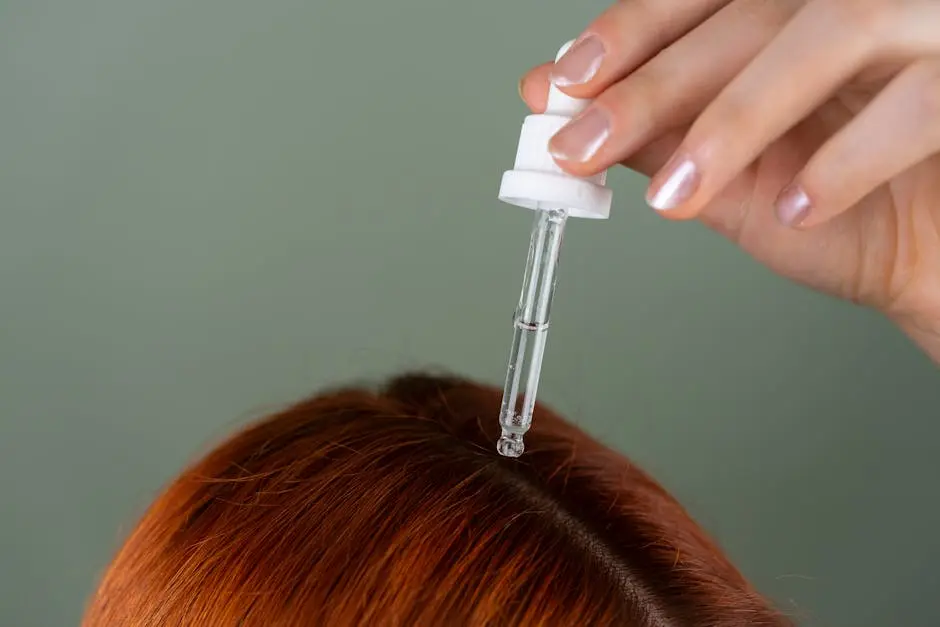Psoriasis on the scalp can be a troublesome condition for many, causing discomfort and impacting your confidence. However, there are effective ways to soothe and manage the symptoms right at home. In this blog, we’ll explore simple yet powerful scalp treatments to help you find relief.
1. Nourishing Your Scalp with Moisturizing Oils
Moisturizing oils like coconut and olive oil can help soften and loosen scales, providing much-needed hydration. Learn how to apply these oils for maximum benefit and improve your scalp’s overall health.
Using moisturizing oils in your scalp care regimen can offer remarkable benefits. Coconut oil, known for its intensive hydrating properties, acts as a natural emollient that can break down the dryness and flakiness associated with psoriasis. Olive oil, on the other hand, contains antioxidants and anti-inflammatory compounds that help in soothing irritation and reducing redness. Massaging these oils gently into your scalp not only facilitates better absorption but also improves blood circulation, which can contribute to healthier skin regeneration. Regular oil treatments may be a safe, cost-effective way to keep psoriasis symptoms at bay.
2. Transforming Your Hair Wash Routine
Changing how you wash your hair can make a big difference. Discover how gentle shampoos and a mindful washing technique can reduce scalp irritation and flakiness.
Adapting your hair wash routine to suit sensitive scalp needs can radically improve your psoriasis management. Opt for shampoos that are harsh chemical-free, as they are less likely to irritate the skin and trigger flare-ups. A key strategy involves focusing on the temperature of the water; lukewarm water is ideal since it doesn’t strip natural oils as aggressively as hot water. Additionally, reduce hair washing frequency to allow your scalp’s natural oils to act as a protective layer, preventing excessive dryness. This balanced approach minimizes disruption to the skin’s barrier while maintaining hygiene.
3. Experiencing Relief with Medicated Shampoos
Medicated shampoos containing ingredients like coal tar and salicylic acid can significantly alleviate itching and scaling. Find out how to choose and use the right product for your needs.
Medicated shampoos can be a game-changer in your battle against scalp psoriasis. Ingredients like coal tar work by slowing down the overproduction of skin cells, which is a major culprit in psoriasis flare-ups. Meanwhile, salicylic acid acts as a keratolytic agent, helping to shed dry skin and reduce scaling effectively. It’s essential to follow the directions on these shampoos meticulously; incorrect usage can lead to ineffective treatment or even irritation. Regularly switching between products that have these key ingredients can prevent your skin from becoming too accustomed to one formula, improving results over time.
Selecting the right medicated shampoo involves understanding your specific scalp needs. If you’re struggling with severe symptoms, a higher concentration of active ingredients might be necessary, whereas milder forms require lesser concentrations. For those looking to incorporate medicated shampoos into their routine without completely giving up their favorite hair products, consider alternating between a gentle, nourishing shampoo and a medicated formula. This adjustment can provide therapeutic benefit without sacrificing the aesthetic desires for your hair.
4. Hydrating and Calming with Aloe Vera
Aloe vera isn’t just a sunburn remedy—it’s also great for psoriasis. Learn how this natural plant can reduce inflammation and promote healthier skin.
Aloe vera gel, straight from the plant or accessible over-the-counter, contains anti-inflammatory properties that are perfect for soothing irritated and itchy skin. Its hydrating effects seal in moisture—a key factor in reducing the symptoms of psoriasis. Applying aloe vera directly to the scalp can create a protective barrier against external irritants while also aiding in the restoration of the skin’s natural pH balance. For those who prefer a DIY approach, creating a hair mask by mixing aloe vera with a few drops of moisturizing oil can amplify the effects and improve overall scalp health.
5. Exfoliating with Gentle Scrubs
Gently exfoliating your scalp can help remove excess scales and promote better skin turnover. Find out which natural scrubs are most effective and how to use them safely.
Exfoliating is not all about abrasion; especially with tender scalp conditions like psoriasis, it requires a gentle touch. Using a scrub made from fine ground oats or sugar mixed with a soothing agent like yogurt or honey can provide mild exfoliation without aggravating the skin. The microgranules assist in lifting dead skin cells while the soothing components help in calming redness and irritation. Additionally, this dual-action not only unveils a smoother scalp but also enhances the absorption of subsequent treatments, boosting their efficacy.
6. Trying Out Light Therapy
Exploring light therapy as a treatment for scalp psoriasis. Discover how exposure to UV light can reduce symptoms and the precautions to consider.
Light therapy, or phototherapy, offers a non-invasive treatment option for chronic cases. By exposing the scalp to specific wavelengths of ultraviolet light, it helps slow cells’ growth and reduces scaling. It’s a treatment typically administered in a clinical setting to carefully control dosage and exposure time, thus minimizing the risk of skin damage. However, home units are also available for personal use, bringing convenience to therapy sessions. Precautions, such as wearing protective eyewear and timing sessions accurately, ensure safe and effective outcomes without potential side effects.
7. Relaxing with Stress Management Techniques
Stress can often trigger psoriasis flare-ups. Delve into various relaxation techniques that can help manage stress levels and prevent symptom worsening.
Managing stress is a critical aspect of controlling psoriasis symptoms. Techniques such as mindfulness, meditation, and yoga can significantly reduce stress levels, which are known triggers for flare-ups. Deep breathing exercises can prove beneficial by lowering cortisol levels and improving overall mental well-being. It’s also helpful to establish a consistent routine incorporating these practices into daily life, making stress management a priority. By cultivating relaxation techniques, not only do you help stabilize your emotional health, but you can also create a stable environment that supports your physical skin health.





